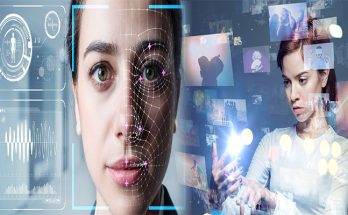Artificial intelligence (AI) has made tremendous advancements in recent years, with machines being able to perform complex tasks, learn from data, and even engage in limited forms of decision-making. However, one critical aspect that AI systems still lack is the ability to understand and interpret the beliefs, intentions, and emotions of other agents – a capacity referred to as “theory of mind.” Implementing theory of mind in AI systems has the potential to revolutionize the way machines interact and collaborate with humans and other AI agents. This article will explore the challenges and future prospects of implementing theory of mind in artificial intelligence systems.
Challenges of Implementing Theory of Mind in AI
1. Complexity of Human Behavior:
Humans possess an intricate and multifaceted understanding of the thoughts, beliefs, and desires of others. Translating this complex human behavior into the algorithms and frameworks of AI systems poses a significant challenge.
2. Ambiguity and Uncertainty:
Interpreting the ambiguous and uncertain nature of human communication and behavior is a hurdle in developing AI with theory of mind capabilities. Human interactions often involve non-verbal cues, sarcasm, and indirect communication, which are challenging for AI systems to decode.
3. Ethical Considerations:
The implementation of theory of mind in AI raises ethical concerns, such as privacy, manipulation, and the potential for misuse. Ensuring that AI with theory of mind capabilities respects the boundaries and autonomy of individuals is a critical challenge.
Future Prospects of Theory of Mind in AI
1. Improved Human-AI Collaboration:
AI systems equipped with theory of mind capabilities can collaborate more effectively with humans. For example, in a workplace setting, AI systems could better understand human intentions and adapt their behavior accordingly, leading to more productive and harmonious collaborations.
2. Enhanced Customer Service and Interaction:
AI with theory of mind can significantly improve customer service interactions. Machines could better understand the needs and emotions of customers, leading to more personalized and empathetic interactions.
3. Advancements in Social Robotics:
Theory of mind in AI has the potential to advance social robotics, enabling robots to understand and respond to human emotions and mental states. This could revolutionize fields such as healthcare, elderly care, and special education.
4. Empowering Personalized Learning:
AI systems with theory of mind capabilities can revolutionize education by understanding and adapting to the unique learning styles and needs of individual students, leading to more personalized and effective learning experiences.
While implementing theory of mind in artificial intelligence systems presents substantial challenges, the future prospects are promising. Advancements in this area have the potential to significantly enhance human-AI interactions, improve customer service, advance social robotics, and empower personalized learning experiences. As researchers and developers continue to tackle the challenges, the integration of theory of mind in AI systems holds the promise of a more empathetic, adaptable, and intelligent future for artificial intelligence.
I have incorporated the challenges and future prospects of implementing theory of mind in artificial intelligence systems in the article. Let me know if you would like me to add anything else or make any changes!





